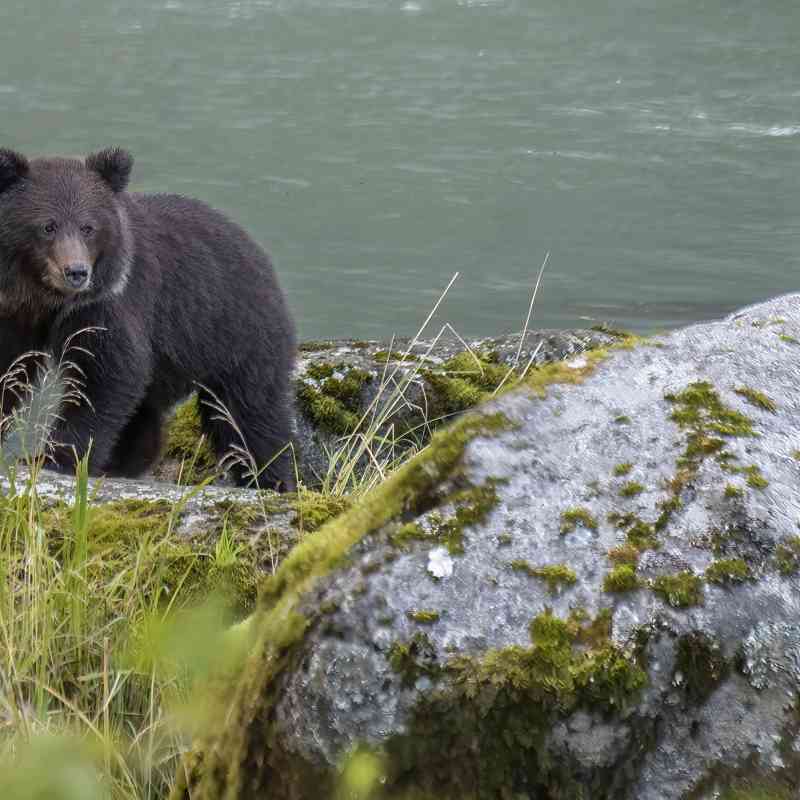New legislation would allow elimination of gray wolves, puts all America’s wildlife at risk
Washington, DC (01/27/2011) -Montana Rep. Denny Rehberg introduced two bills yesterday that would strip federal protections for gray wolves across the country. Together, these bills would allow states to eliminate all wolves in the Northern Rockies, Great Lakes and Southwest, including the 42 Mexican wolves struggling for survival in New Mexico and Arizona. If passed, this legislation would be the first to exempt a single species from the Endangered Species Act, setting a dangerous precedent for removing protections for other imperiled wildlife.
The following is a statement from Rodger Schlickeisen, president of Defenders of Wildlife:
“These bills are bad for wolves, bad for the Endangered Species Act, and bad for the future of all America’s wildlife. Some members of Congress are willing to sell out America’s wolves by looking for a quick legislative fix. In the process, they are undermining not only one of our greatest conservation successes, but also unraveling the Endangered Species Act, one of the world’s most far-sighted conservation laws.
“Most Americans care very deeply about our nation’s wildlife and want to see all animals protected from needless persecution. However, these bills would sacrifice wildlife belonging to all Americans just because a small minority of people don’t like wolves. Obviously, some folks still think all predators are bad, even though those animals are an essential part of this country’s wildlife heritage.
“These bills set a terrible precedent that will open the flood gates to legislation to strip protections for any other species that a politician finds inconvenient to protect. Grizzly bears, salmon, whales, polar bears and Florida panthers are just a few that could be at serious risk. If enacted, this legislation would constitute one of the worst assaults on the ESA since it became law in 1973. If we allow Congress to overrule the courts and usurp the authority of professional wildlife managers and expert biologists, there’s no telling where it will stop.
“For decades there has been a worldwide scientific consensus that human society is causing a rapid and accelerating loss of species, species that hold together the web of life that supports all life on earth, including human life. During President George H. W. Bush’s administration, his science advisory council identified this phenomenon as representing one of the most serious long-term threats to human welfare, and it has only become worse since then. The ESA is the single strongest law we have for combating this enormous threat to future generations, and it would be enormous human folly to mindlessly begin unraveling it based upon political whim.
“It’s time to take a stand against those who simply don’t like wolves before they take down our whole system of science-based wildlife conservation. We call on all members of Congress to uphold the commitment our country has made to protect and recover imperiled wildlife by opposing this damaging legislation.”
The following is a statement from Suzanne Stone, Northern Rockies representative for Defenders of Wildlife:
“Stripping wolves of all protection is irresponsible and misguided, and so is dismantling the Endangered Species Act to justify killing wolves. The ESA is not the problem. The problem is that certain states refuse to take responsibility for managing wildlife responsibly. Idaho and Wyoming have already made clear their intent to get rid of as many wolves as possible, and others states are likely to follow suit. Without adequate protections in place, healthy wolf populations will once again become a thing of the past.
“We want responsible state management with safeguards in place to maintain a healthy wolf population. Those safeguards need to be in place before federal protections are lifted to ensure that the investment of the American people to restore wolves isn't lost because some are determined to demonize the species.
“We should all be working toward a regional wolf management plan that brings all sides together. This shouldn't be a fight, but a partnership.”
The following is a statement from Eva Sargent, Southwest program director for Defenders of Wildlife:
“This is no longer just about wolves in the Northern Rockies. These bills would also strip much-needed protections for the last 42 wild Mexican gray wolves. Mexican wolves still face many threats, including high rates of illegal killing. Even with Endangered Species Act protections, this fragile population is in danger. Without them, these wolves could be doomed. The U.S. Fish and Wildlife Service is the keeper of the flame for endangered species. The federal agency has the experience and resources needed to save and recover Mexican wolves. They should not be delisted.”
Background:On August 5, 2010, federal protections were restored for wolves in the Northern Rockies under the Endangered Species Act. A U.S. District Court in Montana determined that wolves had been illegally delisted along state lines by removing protections in Idaho and Montana but not Wyoming.
Under current delisting plans, Idaho, Montana and Wyoming would have been allowed to manage wolves down to 100 to 150 wolves per states. Wyoming’s plan would allow wolves to be shot on sight in 90 percent of the state. Idaho’s official position, as adopted by the Idaho state legislature in 2002, is to remove all wolves by any means necessary. The 2002 Idaho state wolf management plan calls for no more than 150 wolves. Montana has so far committed to maintaining a minimum of 15 breeding pairs, but there is nothing to prevent the state legislature or future administrations from using this number as the maximum as well. There are currently an estimated 1,700 wolves in the region. More than 1,000 wolves could needlessly die because of this legislation.
At the last count in January 2010, biologists could find just 42 Mexican gray wolves and only two breeding pairs in Arizona and New Mexico – a dangerously low number that scientists say contributes to ongoing genetic inbreeding that is causing low birth and pup survival rates, creating a downward demographic spiral. The population dropped by 19 percent between 2009 and 2010. A new count is being conducted this month.
Learn more about what Defenders is doing to protect wolves in the Northern Rockies
Read a chronology of wolf recovery in the Northern Rockies
Contact(s):
John Motsinger, (202) 772-0288Suzanne Stone, (208) 424-9385
Eva Sargent, (520) 623-9653
Defenders of Wildlife is celebrating 75 years of protecting all native animals and plants in their natural communities. With a nationwide network of nearly 2.2 million members and activists, Defenders of Wildlife is a leading advocate for innovative solutions to safeguard our wildlife heritage for generations to come. For more information, visit defenders.org/newsroom and follow us on Twitter @Defenders.

